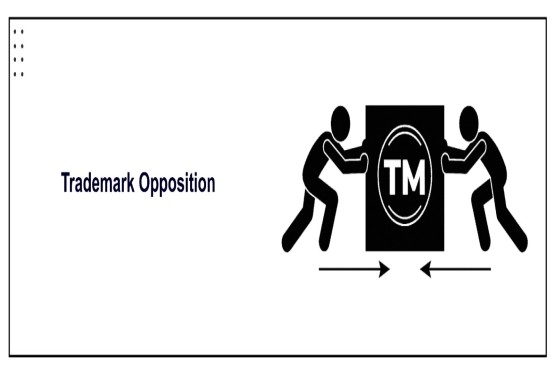In a recent legal development that has captured the attention of the Indian food and beverage industry, American fast-food giant Kentucky Fried Chicken (KFC) has filed a lawsuit against a domestic entity, Nashville Fried Chicken, in the Delhi High Court. The case revolves around alleged trademark infringement and unfair competition, raising important questions about brand identity, intellectual property (IP) rights, and consumer confusion in India’s dynamic quick-service restaurant (QSR) segment.
Background of the Dispute
KFC, operated in India by Yum! Restaurants is one of the most recognized global QSR brands. It has had a presence in India for over two decades, with a strong market footprint, iconic branding, and widespread customer loyalty.
The dispute began when KFC noticed that a Delhi-based food outlet named “Nashville Fried Chicken” was using branding, trade dress, and marketing strategies that allegedly resembled those of KFC. Particularly, KFC's legal team claims that the use of the term “Nashville” — a reference to KFC’s popular "Nashville Hot Chicken" — in combination with “Fried Chicken” is likely to mislead customers and dilute the distinctiveness of the KFC trademark.
Core Allegations
According to the lawsuit, KFC alleges that:
-
The name "Nashville Fried Chicken" is deceptively similar to the brand KFC, especially given KFC’s long-standing use of “Nashville Hot Chicken” as a product.
-
The rival outlet has adopted a red-and-white color scheme, a similar menu style, and fonts that closely resemble those used by KFC.
-
The usage could result in consumer confusion, making customers falsely believe that the Indian outlet is somehow associated with or endorsed by KFC.
-
Such imitation amounts to passing off, trademark infringement, and a violation of the Trade Marks Act, 1999.
KFC’s Legal Stand
Representing KFC, the legal team sought an injunction from the Delhi High Court, restraining Nashville Fried Chicken from:
-
Using the name “Nashville Fried Chicken” or any similar mark,
-
Imitating KFC's trade dress, menu designs, packaging, or advertising style, and
-
Creating any association or false linkage with the KFC brand.
KFC's counsel emphasized the company’s registered trademarks, extensive brand presence, and substantial goodwill in India and globally. They argued that the imitation attempts were deliberate and commercially motivated to ride on KFC’s reputation.
Response from Nashville Fried Chicken
As of now, Nashville Fried Chicken has not released an official public statement. However, in court proceedings, it is expected that the defendants may argue that the term “Nashville” refers to a general style of chicken preparation originating from Nashville, Tennessee, and not exclusively to KFC's product. They may also claim that the use of “Fried Chicken” is descriptive and not proprietary.
Legal Perspective: Key Issues at Stake
This case highlights several crucial legal issues:
-
Trademark Infringement: Whether the name and trade dress used by the defendant constitute an infringement under Indian trademark law.
-
Passing Off: Whether there is a misrepresentation likely to deceive consumers into believing an association between the two brands.
-
Generic vs. Distinctive Use: Whether terms like “Nashville” and “Fried Chicken” can be claimed exclusively by any one entity in the Indian context.
-
Trade Dress Protection: The role of visual presentation and packaging in establishing brand identity and the extent of legal protection it can receive.
Possibilities
If the Delhi High Court rules in KFC’s favor, it may grant an interim or permanent injunction against Nashville Fried Chicken, possibly requiring a rebranding exercise. The decision could set a precedent for future IP disputes in India’s growing QSR market, especially for foreign brands seeking to protect their IP assets from local imitation. Alternatively, if the court finds that “Nashville” is a generic culinary term, and that the branding differences are sufficient, it may dismiss the infringement claim.
Conclusion
The case of KFC vs. Nashville Fried Chicken shows the growing importance of intellectual property enforcement in India’s vibrant food and beverage sector. As domestic brands emerge and flourish, international companies are becoming increasingly vigilant about protecting their trademarks, goodwill, and customer base. Whether this legal clash ends with a settlement or a landmark judgment, it is a reminder to all businesses — big or small — about the value of original branding and the risks of skirting close to established trademarks.






























_(b)_of_the_Trademark_Act,_1999_(1)_crop10_thumb.jpg)



_crop10_thumb.jpg)




























_crop10_thumb.jpg)
_crop10_thumb.jpg)






_crop10_thumb.jpg)








_crop10_thumb.jpg)



_crop10_thumb.jpg)





























_crop10_thumb.jpg)

















_crop10_thumb.jpg)






_crop10_thumb.jpg)












































































































































_crop10_thumb.jpg)




































_crop10_thumb.jpg)












_crop10_thumb.jpg)














































_crop10_thumb.jpg)








































































































